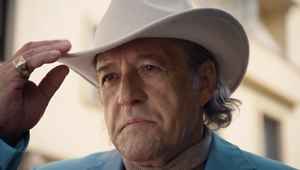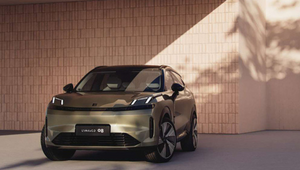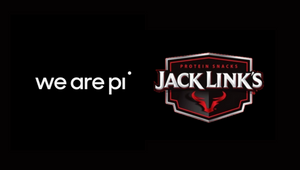
Have You Had Your Ideas Stolen by a Machine?

Patrick Garvey is founding partner at WE ARE Pi. He once made a fake lawyer ad using AI to warn the industry about AI. He’s now waiting for someone to sue a multinational so this whole article can be turned into a Netflix docudrama.
I made a fake ad.
You know the kind. The low-budget, late-night TV vibes. “Have you had an accident at work?” Only this one was for creatives. Victims of prompt theft. Exploited by “innovation.” Ghosted by their own portfolios.
It looks like this…

It’s satire. It’s stupid. And it was made using AI.
Yes, I see the irony. But the real joke? It’s not funny anymore.
AI Is the Tesla. Ethics Is Your Mum.
Right now, AI in the creative industry is like a Tesla screeching away from the driveway, autopilot on, accelerating toward the future with VC cash in the glovebox and your marketing team filming TikToks in the back.
And down the driveway?
Your mum is running after it, shouting, “WAIT! You forgot your sandwiches!”
Those sandwiches? Ethics. Copyright. Consent. Humanity.
You know, the boring stuff that doesn’t show up in pitch decks until someone gets sued.
It’s All Fun and Games Until Procurement Gets Subpoenaed
Here’s the part that should make procurement departments sit up:
We are one lawsuit away from a generative creative crisis.
So, forget the thought pieces and the “AI won’t replace creatives” panel sessions. This is going to court. And it’s going to be expensive. And I’m all here for it.
Introducing: The McAI Lawsuit
Let me paint the picture.
Case file: The Artist v. Snackzilla Global Holdings
A major food brand (name changed, but let’s be honest, you already have one in mind) releases a global campaign: packaging, script, visuals, everything.
The work was “enhanced” with generative AI.
The AI was trained on open web datasets scraped from personal portfolios, social feeds, and creative platforms. No consent.
Weeks later, a young illustrator or artist studio recognizes her exact visual language in the campaign: colour palette, facial style, even the little lemon wearing a bandana.
Her agency is already in talks with the same client.
The illustrator sues for commercial exploitation, breach of identity, and IP theft. It escalates. The court grants discovery.
Snackzilla's AI partner folds under pressure. Training data logs are leaked. Half the campaign’s “creative inspiration” turns out to be a list of artists by name.
The lawsuit became a class action. Damages exceed $1.6 billion.
The public boycotts. The shareholders panic.
Procurement Googles: “Can we claw back an AI licensing agreement?”
From Coffee Burns to Culture Theft
Remember Liebeck v. McDonald’s? The infamous hot coffee case?
The media framed it as a joke until it turned out McDonald’s had been serving dangerously hot coffee and ignoring prior complaints.
This is that case. But instead of a lap burn, it’s cultural, professional, and personal.
And the coffee? It’s your portfolio boiled down to training data.
The AI Reckoning Won’t Be Televised. It’ll Be Redacted.
This isn’t about being anti-AI. We all use it. (Exhibit A: my fake ad.)
This is about refusing to pretend it’s just “the future” when it’s actually theft.
Creative IP is not just legal.
It’s emotional.
It’s identity.
It’s the result of time, taste, cultural nuance, and human toil.
Reducing it to “data” is not neutral. It’s negligent. And unethical.
What Should Brands Do Right Now?
If you’re a brand, here’s what you do today, not tomorrow.
Interrogate your AI tools because if the training data is a mystery, then so is your liability. Perhaps you can demand ethical sourcing from your agencies. If they can’t prove the work is consented, original, or licensed, then walk away. And I expect the agencies to suggest not using AI tools if they are left liable on behalf of a client.
This one’s my favourite. Make procurement the enforcer. Because when this becomes a billion-dollar problem, they’ll wish they’d read the T&Cs.
And lastly, as we all know, the AI car isn’t slowing down. But maybe we should check who's in the passenger seat before we get too far down the road. I’d quite like it to be the newly created role of a chief ethics officer, not just to avoid risk but to protect the integrity of your brand's voice in the AI age.
Because the Next Time You Hear "It’s Just Data"...
...remember:
So was coffee.
Until someone got burned.















